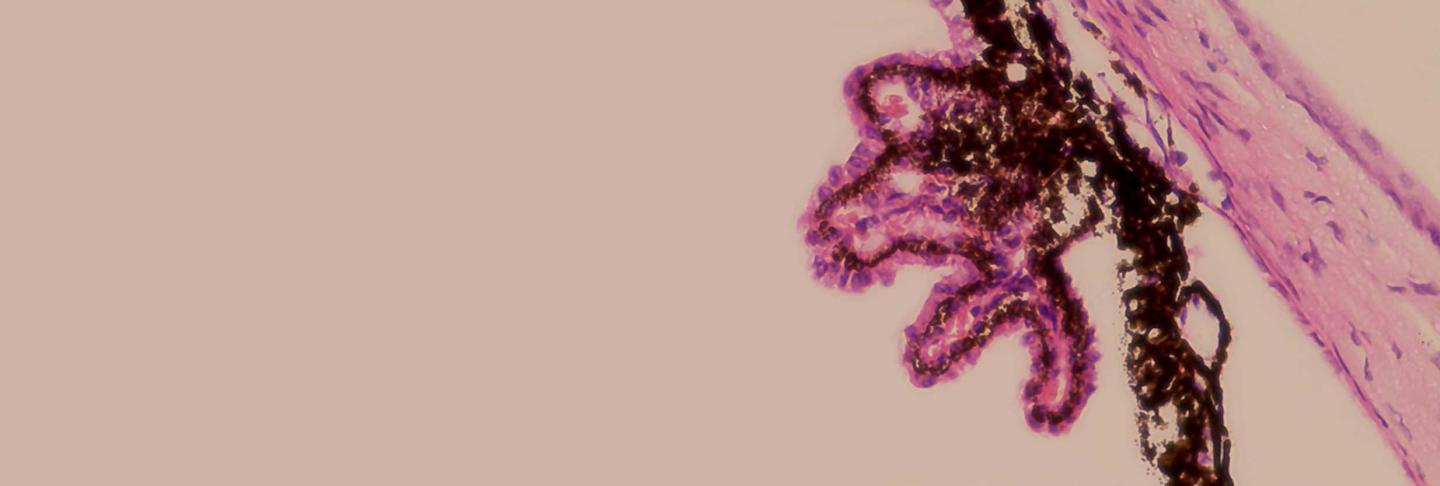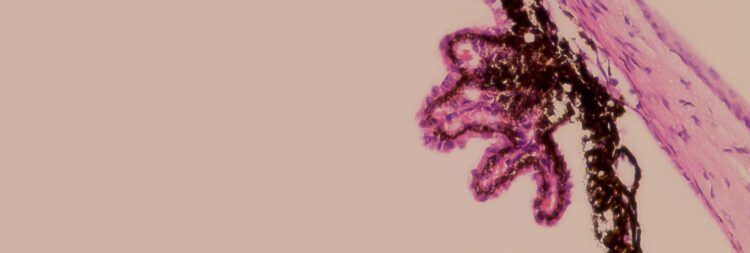
Credit: University of Bristol
A new study led by the University of Bristol has shown a common eye condition, glaucoma, could be successfully treated with a single injection using gene therapy, which would improve treatment options, effectiveness and quality of life for many patients.
Glaucoma affects over 64 million people worldwide and is a leading cause of irreversible blindness. It is usually caused by fluid building up in the front part of the eye, which increases pressure inside the eye and progressively damages the nerves responsible for sight. Current treatments include either eye drops, laser or surgery, all of which have limitations and disadvantages.
The research team led by academics at the Bristol Medical School: Translational Health Sciences tested a new approach that could provide additional treatment options and benefits. Their findings are published in the journal Molecular Therapy.
The researchers designed a gene therapy and demonstrated proof of concept using experimental mouse models of glaucoma and human donor tissue.
The treatment targeted part of the eye called the ciliary body, which produces the fluid that maintains pressure within the eye. Using the latest gene editing technology called CRISPR, a gene called Aquaporin 1 in the ciliary body was inactivated leading to reduced eye pressure.
Dr Colin Chu, Visiting Senior Research Fellow in the Bristol Medical School: Translational Health Sciences and corresponding author, said: “Currently there is no cure for glaucoma, which can lead to loss of vision if the disease is not diagnosed and treated early.
“We hope to advance towards clinical trials for this new treatment in the near future. If it’s successful it could allow a long-term treatment of glaucoma with a single eye injection, which would improve the quality of life for many patients whilst saving the NHS time and money.”
The academics are currently in discussion with industry partners to support further laboratory work and rapidly progress this new treatment option towards clinical trials.
###
The study was funded by the National Eye Research Centre, T.F.C. Frost Charitable Trust, Above & Beyond, Fight for Sight, Elizabeth Blackwell Institute and Medical Research Council (MRC).
Media Contact
Joanne Fryer
[email protected]
Related Journal Article
http://dx.





